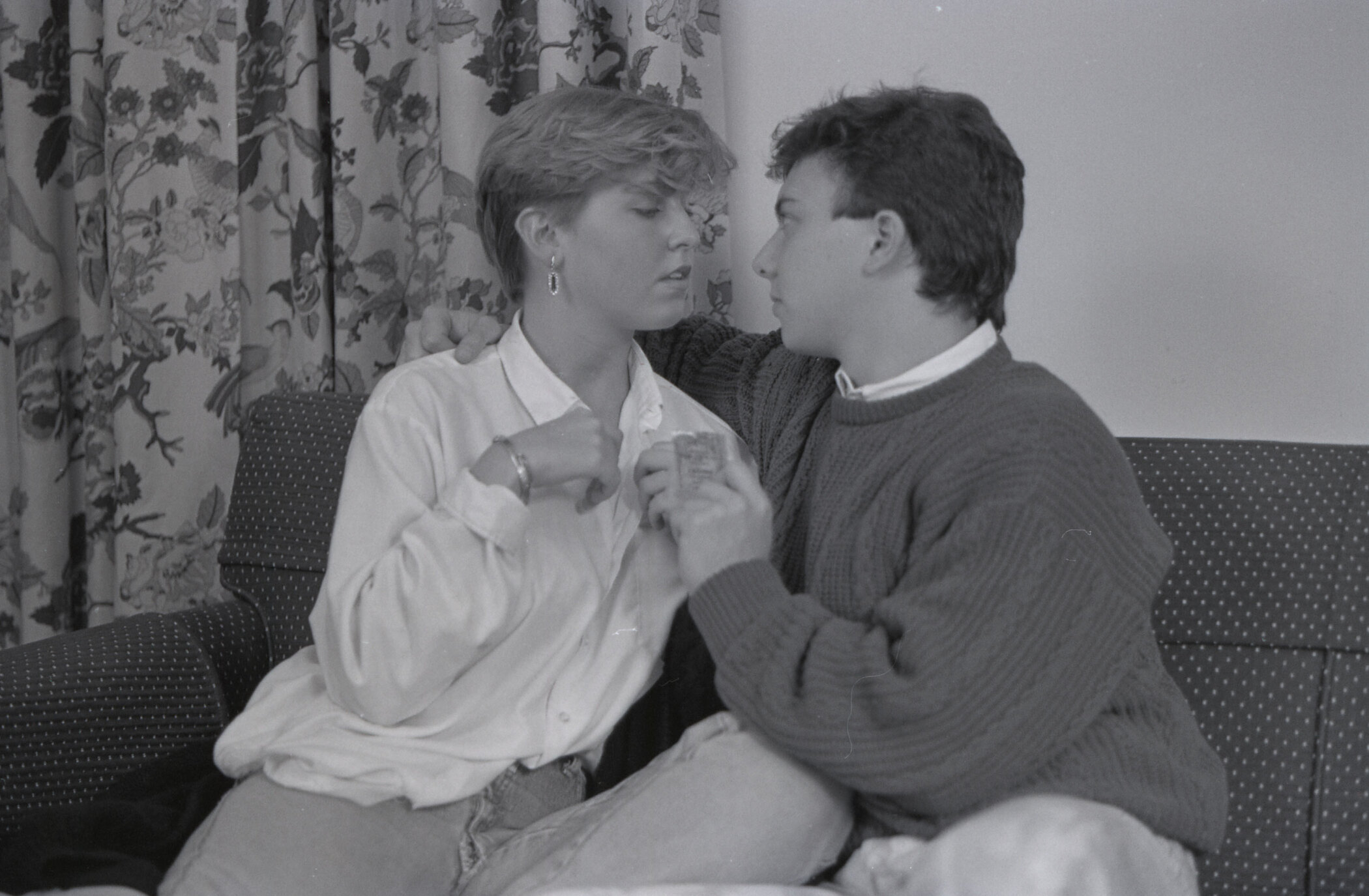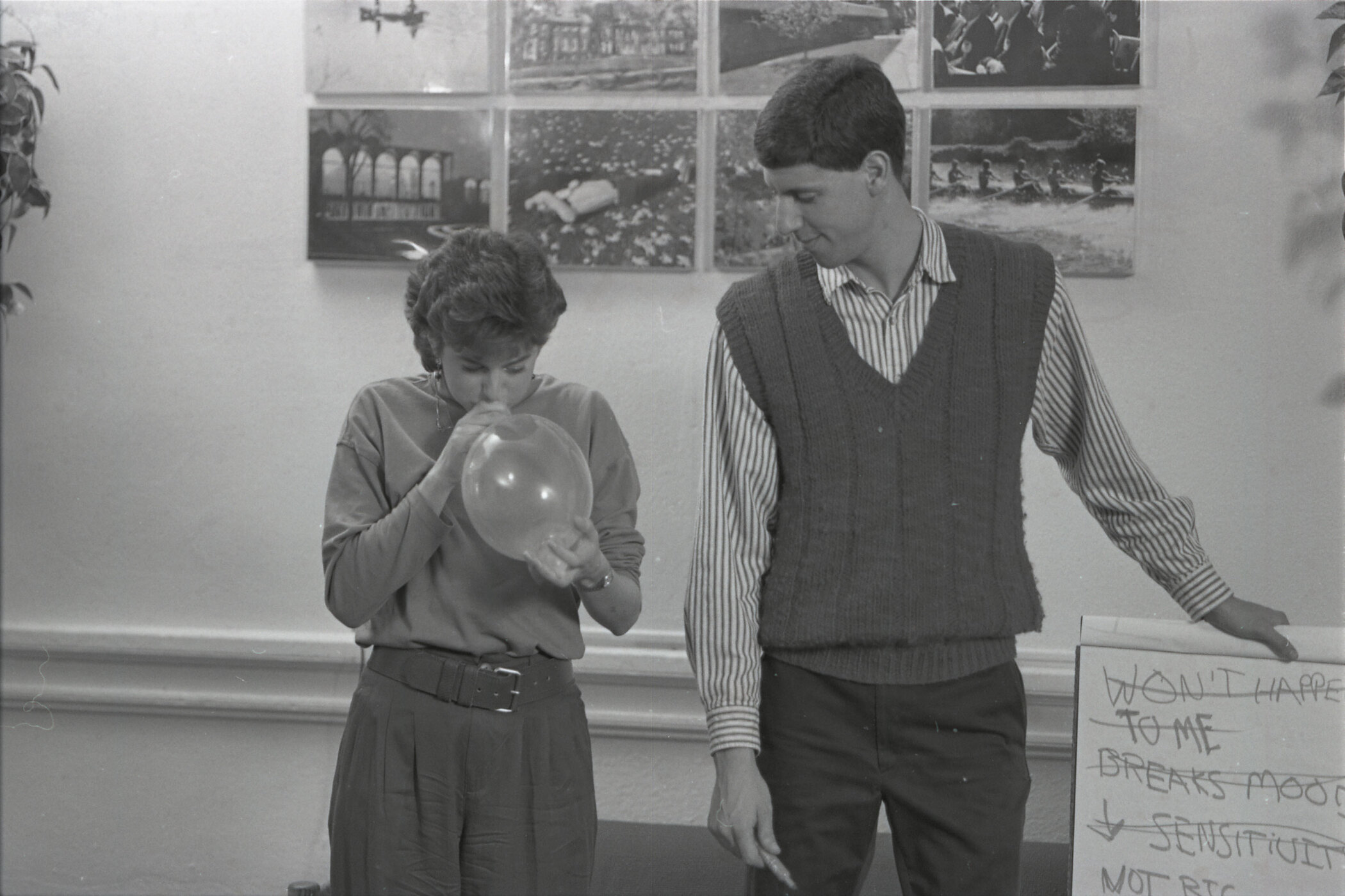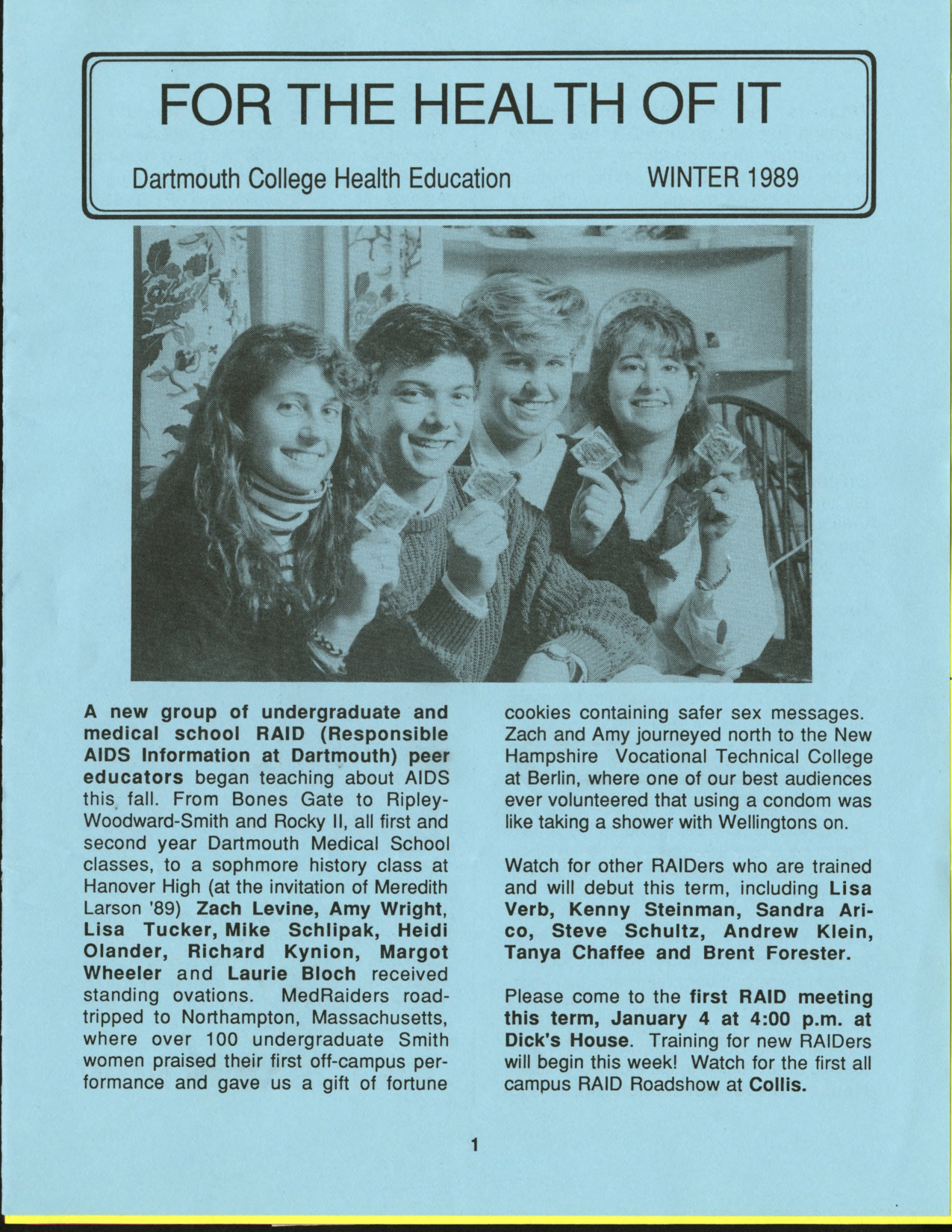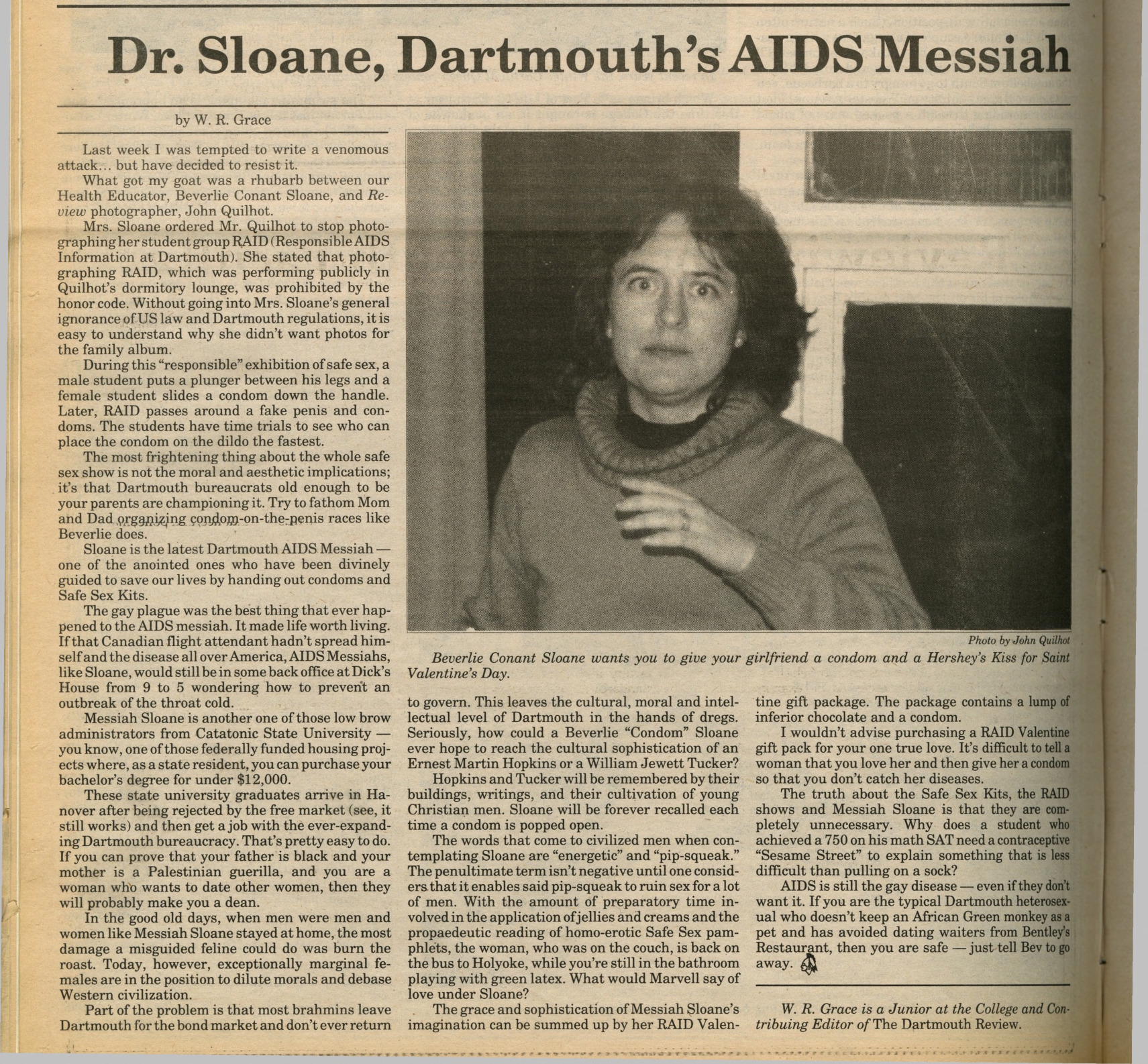Responsible AIDS Information at Dartmouth
The centerpiece of the College’s expanded AIDS prevention program was the student-run organization Responsible AIDS Information at Dartmouth, or RAID. Founded in the fall of 1987 by Sarina Schrager, Jim Branson, Beth Burnside, Steve Dettlebach (all ’88), RAID’s mission was to “raise awareness in the Dartmouth community about AIDS.” In years past, any sort of AIDS advocacy that occurred was led by the GSA, which perpetuated the idea that the disease was a fringe, queer concern.
Hoping to dispel this belief, the founders of RAID (who self-described as ‘average’ Dartmouth students) created the organization to teach heterosexual students on campus that AIDS could affect them too. The centerpiece of RAID’s programming was the peer-education roadshow, which combined humor and campiness with serious facts and candid advice. The roadshow consisted of three segments, beginning with AIDS 101, which discussed facts and statistics about the epidemic. Next, the skills development segment would feature performers role playing scenarios, focusing on communication skills and relationships. Finally, the show concluded with the condom etiquette section, where performers taught peers to use condoms to prevent contracting AIDS or other sexually transmitted diseases.
The GSA – which at this point had changed their name to Dartmouth Area Gay and Lesbian Organization (DaGLO) – initially held concerns about RAID’s programming and message. Steve Carter, an executive in DaGLO, shared in an interview in The Dartmouth that he feared RAID would focus on the “medical and heterosexual” perspective7 and neglect gay issues. To assuage this fear, Beverlie Conant Sloane – staff advisor to RAID – worked with both organizations to broaden the perspectives featured in the roadshow. Carter later remarked on the collaborative effort, saying RAID “[helped] to bring the gay and straight communities together on the AIDS issue.”
By winter term 1988, the roadshow had performed for UGAs, dorms, Greek houses, deans, senior societies, and had even been requested to travel to other colleges across the country. Beverlie Conant Sloane and RAID representatives were asked to help create similar programs at peer institutions such as Harvard and Yale. Student evaluations of the roadshow reported overwhelmingly positive feedback. Performers were praised for their balance of sensitivity and humor, and for engaging a wide variety of audiences. Students who saw the show reported they were struck by new information, chiefly the data on AIDS in the heterosexual population and the importance of using condoms.
RAID’s groundbreaking peer education work was honored in 1989 at the fifth International Conference on AIDS in Montreal. As part of Beverlie Conant Sloane’s presentation “Innovative AIDS Education for Adolescents,” RAID members performed a sketch from the roadshow. The presentation was so well-received that RAID won a conference award, as well as an invitation from the French organization Youth Against AIDS to perform in Paris the following summer.
One of RAID’s greatest strengths was adapting content to fit the needs of its audience. Noting the need for AIDS education in Native American communities, several indigenous RAID performers adapted the roadshow for a Native American audience. NAD-RAID, as the offshoot was called, performed in Wyoming in the summer of 1990 and was honored at the American Indian Research Symposium.
Despite the overwhelming praise for RAID – from both Dartmouth students and others – some continued to criticize the College’s AIDS education program. The Dartmouth Review singled out Conant Sloane for misogynistic and hate-filled attacks. One article called Conant Sloane the “AIDS messiah,” arguing that the “gay plague…made [her] life worth living.” The article concluded with:
“In the good old days, when men were men and women like Messiah Sloane stayed at home, the most damage a misguided feline could do was burn the roast. Today, however, exceptionally marginal females are in the position to dilute morals and debase Western civilization.”
Luckily, the Review remained a small – yet vocal – minority. For the rest of campus and beyond, RAID was instrumental in shifting preconceptions about AIDS and safer sex.
_______________________
From the Archives
Click on an image to access the full document, audio-visual components, and/or metadata associated with that item.
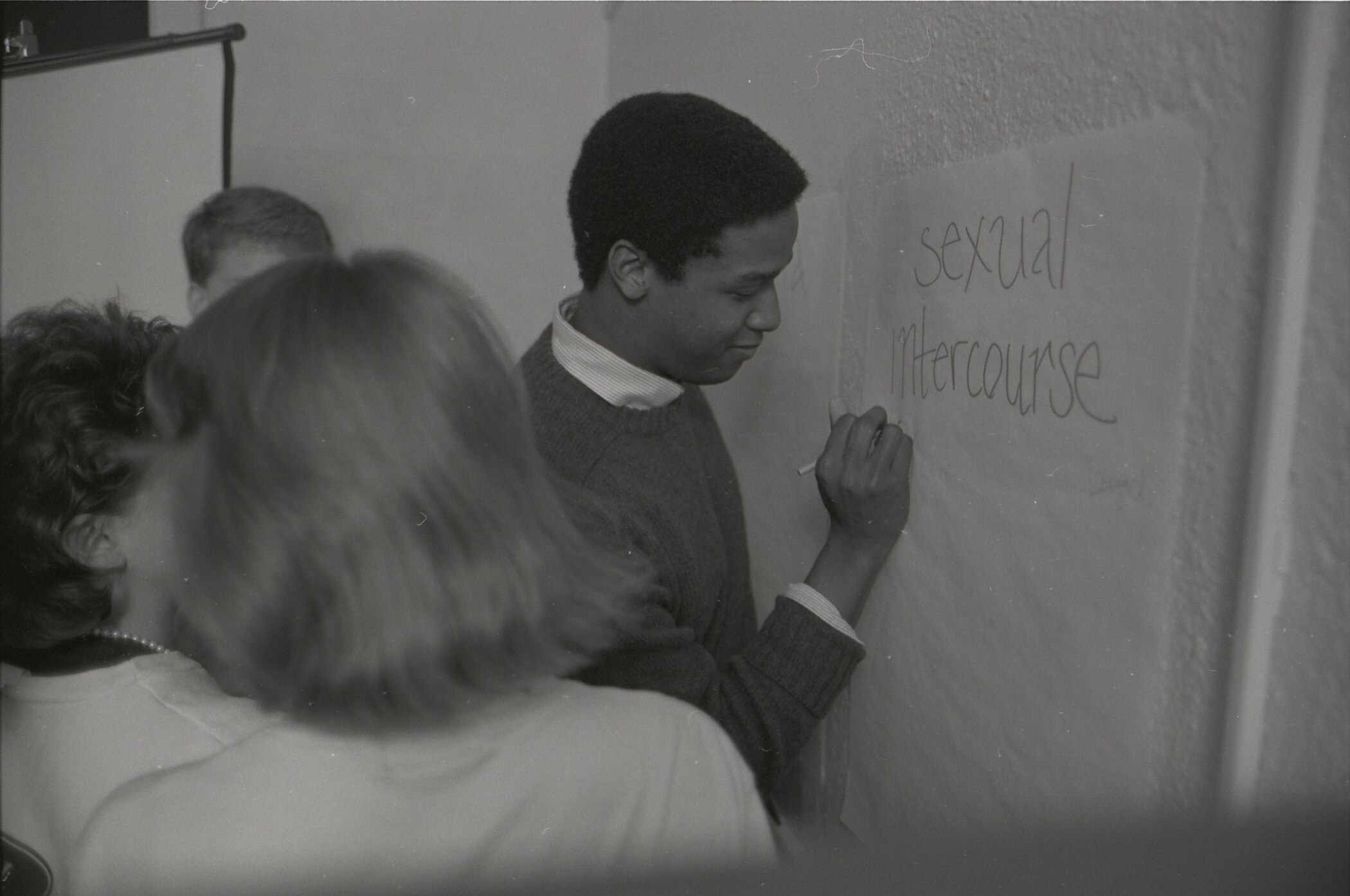
This photograph, taken by the College photographer, shows a student participant in the RAID roadshow writing 'sexual intercourse' on a poster.
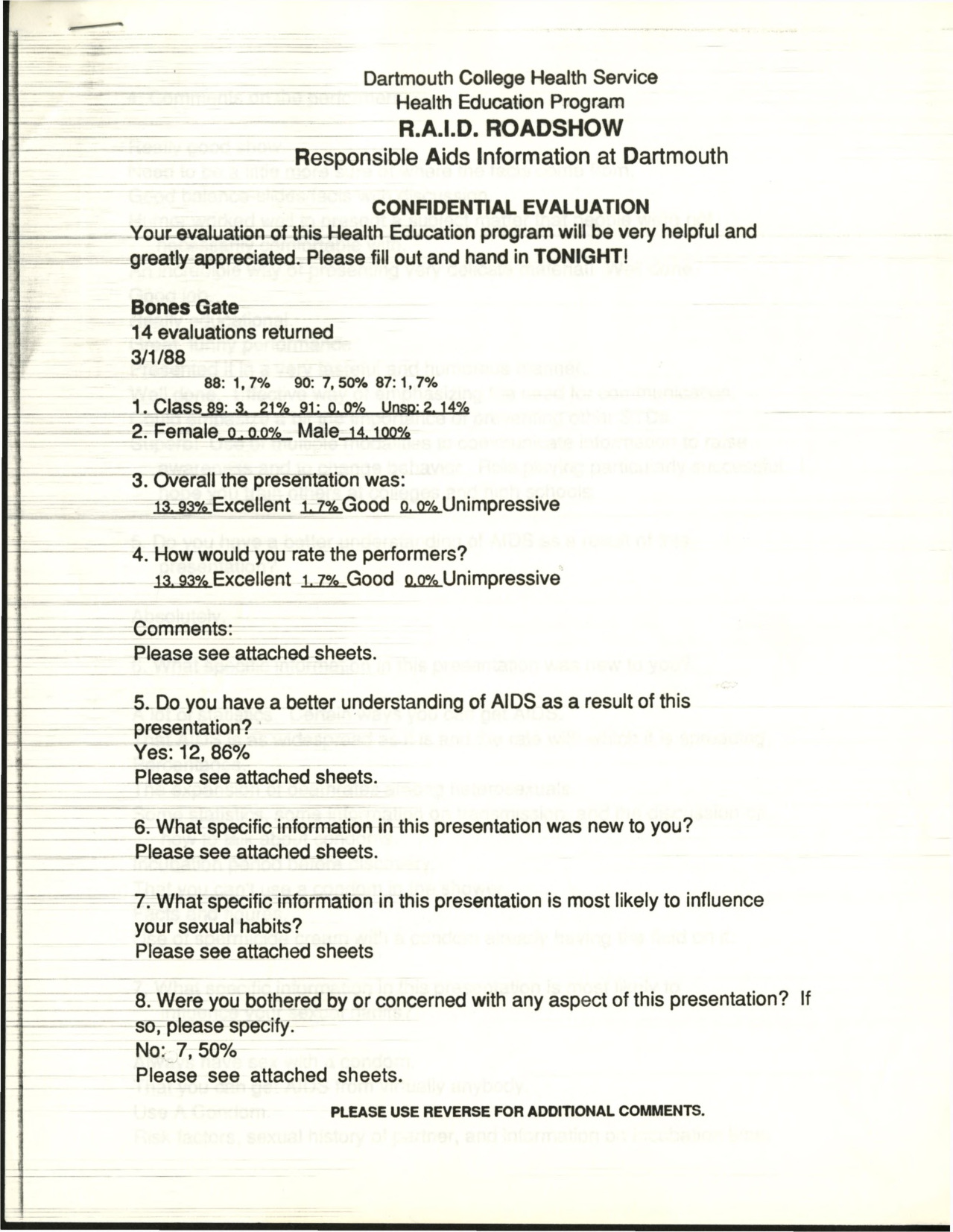
This is the summary of Bones Gate fraternity's evaluations of the RAID Roadshow. The feedback is overwhelmingly positive.
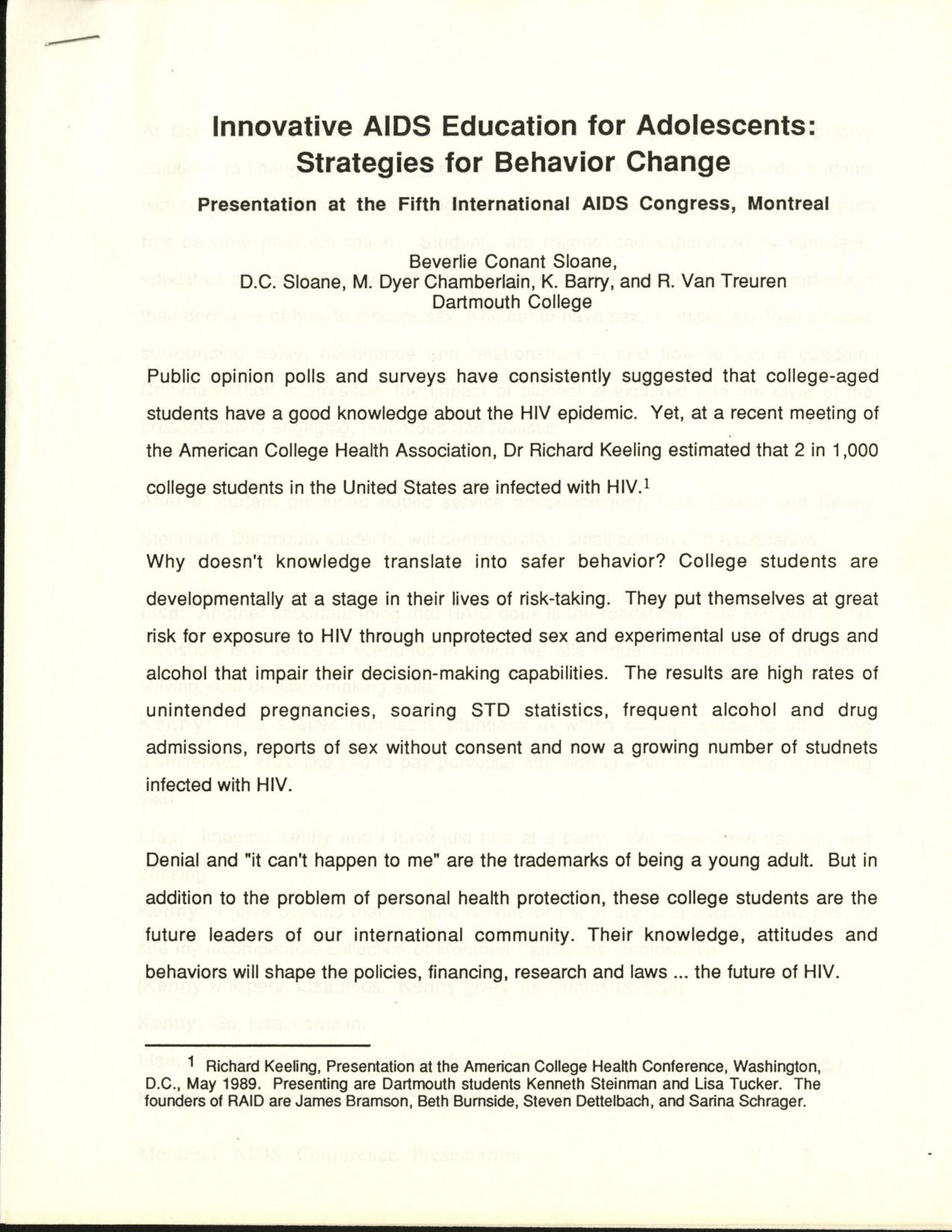
Beverlie Conant Sloane and RAID presented at the International Conference on AIDS in Montreal. This presentation script contains a snippet of the RAID Roadshow.
 Historical Accountability Student Research Program
Historical Accountability Student Research Program
